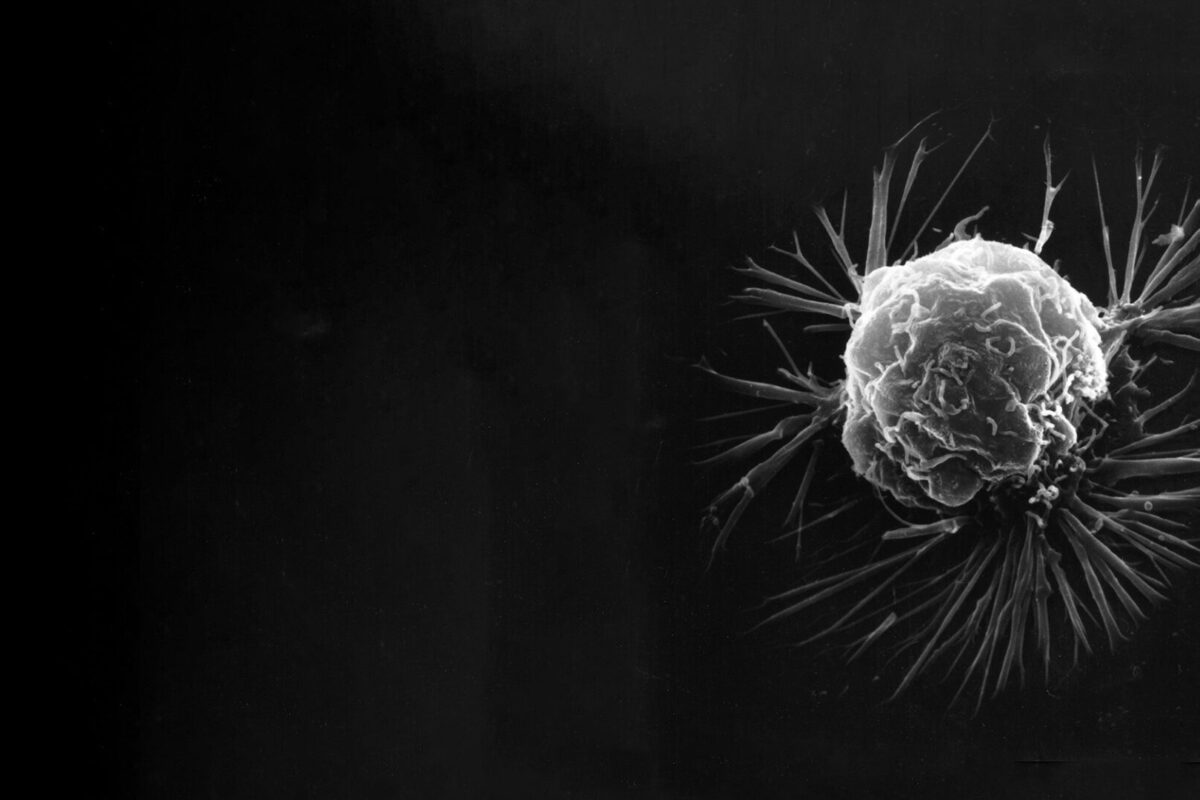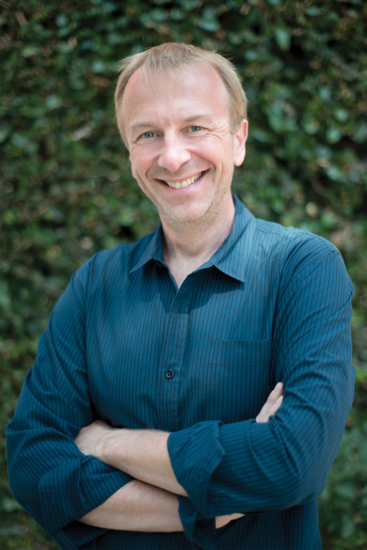
Clinicians agree that cancer screenings, such as mammograms, offer the best hope of finding cancer before it’s out of hand. Unfortunately, screening is often uncomfortable and can require invasive techniques. It also generally involves several days of anxious waiting before results are available.

Replacing these sorts of screenings with a simple blood draw, one which could provide instantaneous results, has been a tantalizing yet unrealized dream among researchers for decades. (It was also the failed promise underpinning the Theranos scandal, which rocked Silicon Valley in recent years.) USC Dornsife College of Letters, Arts and Sciences Dean’s Professor of Biological Sciences Peter Kuhn says such screening technology isn’t just a pipe dream, however.
He and his team are developing a new method they’ve dubbed “the Pink Test” to detect breast cancer by looking at a patient’s bloodstream rather than imaging tissue. It could revolutionize cancer screening and treatment monitoring for many types of cancer.
Kuhn, a founding member of the Michelson Center for Convergent Biosciences at USC and part of the Biden Administration’s Cancer Moonshot, which is aiming to significantly reduce cancer deaths in America, recently sat down for a Dornsife Dialogues with retired cancer researcher Amy Ross ’86 to discuss his work.
Why it matters: Mammograms, the current standard screening for breast cancer, have a number of flaws.
- They’re uncomfortable and invasive, which means many women avoid them.
- Results can take days to come back.
- If a mammography does detect a tumor, patients must often undergo painful follow-up biopsies.
- Screening mammography is only about 85% accurate today, says Kuhn: “You have about a 10% chance that it comes back as a false positive. The other problem is that 10% of all breast cancers are actually being overlooked or getting detected too late.”
What’s new: Kuhn and his team are at work on the Pink Test, a simple blood test that could replace mammograms and biopsies and better monitor patients with breast cancer diagnoses.
- In a recent study, the Pink Test was roughly 99% accurate, reducing false alarms and missed cancers.
- It also proved better at detecting lobular carcinoma, the second most common breast cancer, which is typically harder to detect and is often only caught in later stages using mammography.
What else? Other solid-tumor cancers, such as lung or colon cancer, could potentially be detected using this sort of screening.
It’s personal: Kuhn’s focus on breast cancer arises from personal experience. His mother was diagnosed with breast cancer when he was a child. Although she survived, her friend undergoing treatment at the same time did not. Kuhn knows that this test could potentially save millions of lives.
“There are 70 million women in the United States alone who are eligible for breast cancer screening,” says Kuhn. “Every day that we are late in bringing this test to the clinic, there are 200,000 women potentially missing out.”
Next steps: Kuhn and his team are working on verifying the results of the initial study, as well as scaling up into larger studies with different population groups.
- He’s hoping to get approval from the Food and Drug Administration within the next few years so the test can become available to everyone.
Game changer: The Michelson Center for Convergent Bioscience brings together researchers and students from USC Dornsife and across the university — and the world — to work on important scientific challenges.
- “I am not a medical doctor. I have actual no training in medicine whatsoever. I’m merely a physicist,” says Kuhn. “I am approaching cancer through a very different lens than a clinician would. In isolation I can’t make any progress, but together in this context of convergent science, I really think we can make progress in very different ways.”
Get involved: To learn more about the Pink Test, including how you can get involved, visit the research website at kuhn.usc.edu/usc-intercept/.
